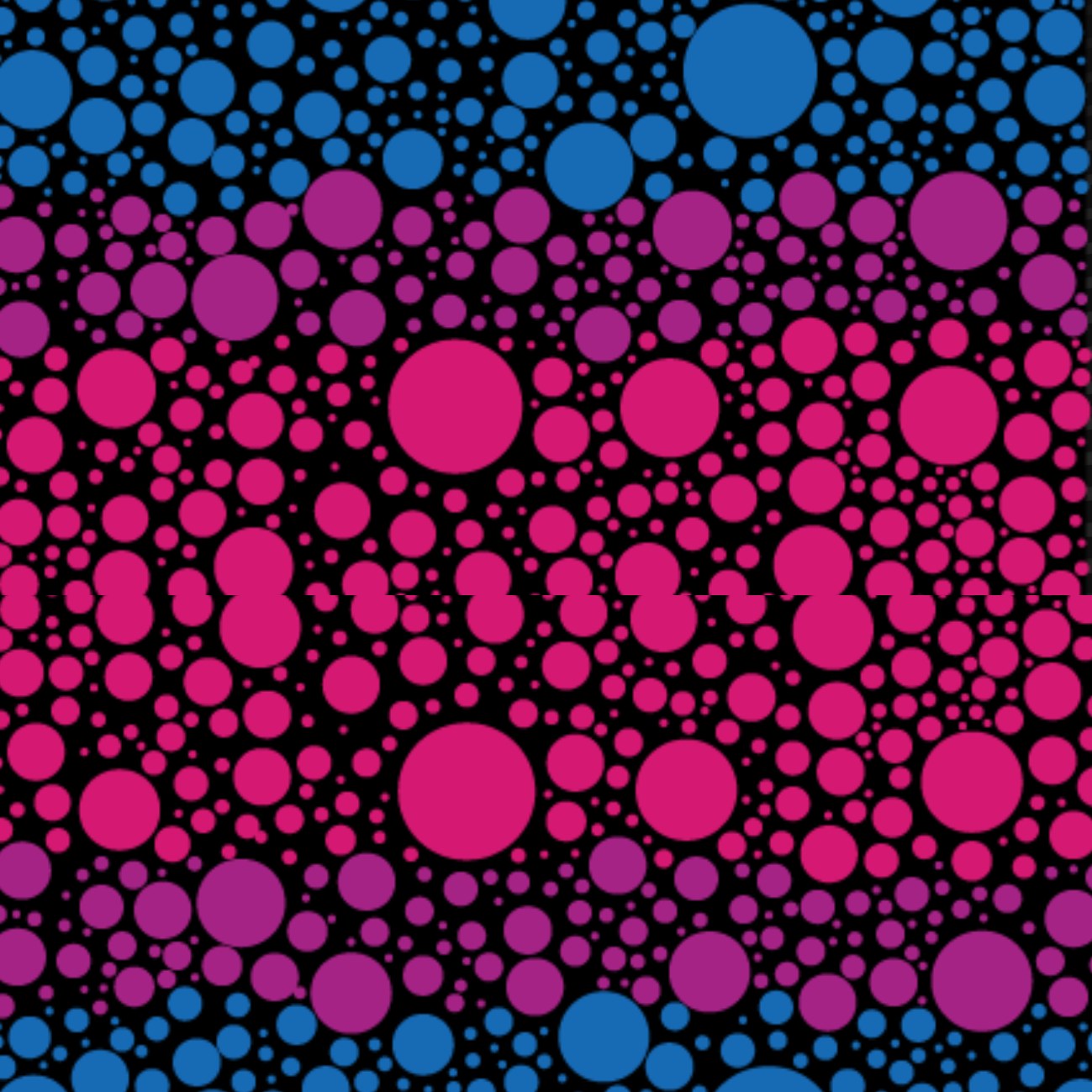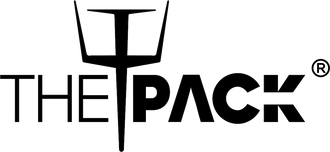
Bisexual Awareness Week 2024
Celebrating Visibility, Understanding & Inclusion

As September 23rd, 2024 approaches, the LGBTQ+ community and allies worldwide prepare to celebrate Bisexual Awareness Week. This annual observance, from September 16th to September 23rd, culminates in Celebrate Bisexuality Day on September 23rd. The week is a powerful platform to educate, advocate and celebrate the bisexual+ community, addressing their challenges and promoting greater understanding and acceptance.
Understanding Bisexuality |
Before delving into the significance of Bisexual Awareness Week, it's crucial to understand what bisexuality means. According to PFLAG National's glossary, bisexuality, often referred to as bi or bi+, describes individuals who have the potential for romantic, emotional, and/or sexual attraction to people of more than one gender. This definition, crafted by bi+ educator and advocate Robyn Ochs, emphasizes that bisexuality isn't limited to attraction to just two genders, as the "bi" prefix might suggest. Instead, it can encompass attraction to genders similar to and different from one's own.
It's important to note that bisexual individuals need not have had equal sexual or romantic experiences with people across genders nor equal levels of attraction. Some may have no experience at all. The critical factors in determining orientation are attraction and self-identification.

The Bisexual+ Spectrum
Bisexuality is often used as an umbrella term that includes various non-monosexual identities. This spectrum, sometimes referred to as bi+, can consist of identities such as pansexual, fluid, and queer. The language around sexuality is constantly evolving, and individuals have the freedom to choose the terms that best describe their experiences and feelings.
The Importance of Bisexual Awareness Week |
Bisexual Awareness Week, co-founded by GLAAD and BiNet USA, serves several critical purposes:
-
Visibility: Despite being the largest group within the LGBTQ+ community, bisexual individuals often face erasure and invisibility. This week provides a dedicated time to highlight bisexual experiences and contributions.
- Education: Many misconceptions surround bisexuality. This week offers opportunities to dispel myths and provide accurate information about bisexual identities.
- Advocacy: Bisexual individuals face unique challenges, including discrimination from both heterosexual and LGBTQ+ communities. Bisexual Awareness Week creates a platform for advocating for bisexual rights and inclusion.
- Celebration: It's a time to celebrate bisexual identity, culture, and history, fostering pride within the community.
- Support: By raising awareness, this week helps create and strengthen support networks for bisexual individuals.

The Bisexual+ Community by the Numbers
Recent statistics highlight the significance of the bisexual+ community within the broader LGBTQ+ landscape. According to a 2022 Gallup poll, more than half of LGBTQ+ Americans identify as bisexual, making them the largest single group in the LGBTQ+ community. This represents a significant increase over the past decade, with the percentage of U.S. adults identifying as lesbian, gay, bisexual, transgender, or something other than heterosexual doubling during this period.
The generational breakdown is particularly striking. Approximately 21% of Generation Z Americans (born between 1997 and 2003) identify as LGBT, with bisexual being the most common LGBT status among Gen Z, millennials, and Gen X. These numbers underscore the growing visibility and acceptance of diverse sexual orientations, particularly among younger generations.

Challenges Faced by the Bisexual+ Community |
Despite increasing visibility, the bisexual+ community continues to face numerous challenges:
- Bi-erasure: This refers to the tendency to ignore, remove, falsify, or reexplain evidence of bisexuality in history, academia, news media, and other primary sources. It can also manifest as the assumption that all people in same-gender relationships are gay or lesbian or that those in different-gender relationships are straight.
- Biphobia: Prejudice, fear, or hatred directed toward bisexual people. This can come from both heterosexual and LGBTQ+ communities.
- Mental Health Disparities: Research has shown that bisexual individuals face higher rates of anxiety, depression, and substance abuse compared to both heterosexual and gay/lesbian individuals.
- Lack of Representation: Bisexual characters and storylines are often underrepresented or misrepresented in media, contributing to stereotypes and misunderstandings.
- Health Disparities: Bisexual people face unique health challenges, including higher rates of specific physical health issues and barriers to accessing appropriate healthcare.

Progress & Achievements |
Despite these challenges, the bisexual+ community has made significant strides in recent years:
- Increased Visibility: More public figures and celebrities openly identify as bisexual, providing important representation and role models.
- Policy Changes: Many organizations and institutions are updating their policies to be more inclusive of bisexual identities.
- Research: There's growing academic interest in bisexuality, leading to a more nuanced understanding of bisexual experiences and needs.
- Community Building: Online platforms have allowed bisexual individuals to connect and form supportive communities, combating isolation.
- Intersectionality: There's increasing recognition of the diverse experiences within the bisexual community, including the intersections with race, gender identity, religion, and other aspects of identity.

Celebrating Bisexual Awareness Week
Bisexual Awareness Week encompasses various events and activities:
- Online Campaigns: Social media plays a crucial role, with hashtags like #BiWeek and #BisexualAwarenessWeek used to share stories, information and support.
- Educational Workshops: Many organizations host panels, webinars, and workshops to educate about bisexual experiences and issues.
- Community Events: Local LGBTQ+ centers and organizations often host gatherings, socials, and support groups.
- Media Representation: During this week, there is often a push for increased and improved representation of bisexual characters and stories in the media.
- Flag Raising: Some communities raise the bisexual pride flag (pink, purple, and blue) to show support and visibility.

Being an Ally to the Bisexual+ Community
Allies play a crucial role in supporting the bisexual+ community. Here are some ways to be a better ally:
- Educate Yourself: Learn about bisexual history, experiences, and challenges. Resources from organizations like the Bisexual Resource Center and PFLAG are excellent starting points.
- Challenge Biphobia and Bi-erasure: Speak up against biphobic comments and correct misconceptions when you encounter them.
- Respect Identities: Understand that bisexuality is a valid and stable identity. Avoid suggesting it's "just a phase" or pressuring individuals to "pick a side."
- Support Bisexual Organizations: Consider donating to or volunteering with organizations that support the bisexual community.
- Amplify Bisexual Voices: Share content created by bisexual individuals and promote bisexual artists, writers, and creators.
- Be Inclusive in Language: Use inclusive language that doesn't assume monosexuality. For example, instead of asking if someone is "gay or straight," ask about their orientation in an open-ended way.
 Conclusion
Conclusion
Bisexual Awareness Week, culminating on September 23rd, 2024, offers a vital opportunity to celebrate, educate, and advocate for the bisexual+ community. As the largest group within the LGBTQ+ spectrum, bisexual individuals deserve recognition, understanding, and support. By participating in Bisexual Awareness Week events, educating ourselves and others, and being vocal allies, we can contribute to a more inclusive and accepting world for people of all sexual orientations.
As we approach this critical week, let's remember that the journey towards full acceptance and equality is ongoing. Every conversation, every show of support, and every act of visibility contributes to a world where all individuals, regardless of their sexual orientation, can live authentically and proudly. Bisexual Awareness Week is not just a celebration; it's a call to action for continued progress, understanding, and inclusivity.










